Introduction: #YOR #RIFF
Just to recap, I have
dedicated 2019 as my Year of Romance (#YOR) here on Supernatural Underground,
specifically Romance in Fantasy Fiction (#RIFF). Because as I indicated last
month, Fantasy is how I roll. :D
I began in March with JRR Tolkien’s The Lord Of The Rings (aka when romance is missing-in-action), continuing in April with LainiTaylor’s Daughter of Smoke and Bone,
which is romance of the kind I categorize as “my enemy, my love.” Last month, I
featured Patricia McKillip’s Riddlemasterseries, with the additional tagline of “Constancy Amid Tumult.”
As I indicated at the
outset, this series is all about my personal favorites as opposed to any sort
of endeavor to faithfully document the evolution of romance in Fantasy, or hone
in on its most significant examples. I’ll include this reminder from time to
time, just in case you’re wondering why your personal favorites, or various
landmark works, haven’t been mentioned yet. ;-)
However, one thing I am trying to do with the #YOR #RIFF series
is alternate older works with more recent publications. So I started with
Tolkien (mid 1950s), leapt forward to Laini Taylor (2011), then it was back to
the late 1970s for Patricia McKillip’s Riddlemaster trilogy.
By doing this, you may get some sense
of how romance has manifested in the genre since Tolkien and The Lord of the Rings. If that adds additional
interest for readers, then so much the better – I’m entirely good with that!
For now, however,
onward to our June feature, Guy Gavriel Kay’s Under
Heaven, which was published in 2010.
Guy Gavriel Kay’s Under
Heaven:
Li-Mei & Meshag’s Tale or
‘When Your Ship Doesn’t Sail’
Also known as: When
The Stars Don’t Align, aka It Could Never Be – even though you, as reader,
would really love to have that ship sail!
By way of context, “shipping”
is a fandom phrase, in which fans of a series or show advocate for characters to
get together romantically. If the series does end with your preferred
characters getting together, then your “ship” has sailed. In other cases, it
may sink without a trace… One well-known example of “shipping” (where the ship
did not sail) is from the original animated show Avatar: The Last Airbender, in which fans shipped Katara and Zuko,
arguing for their “ship” until the end. J
So that probably gives
you an idea, if the tagline didn’t already give it away, of where this is going…
;-)
Guy Gavriel Kay’s Under Heaven is a Fantasy loosely based (as
I understand it) on events during China’s Tang dynasty. Like most of Kay’s novels,
there are several point-of-view (pov) characters and – in this novel, anyway – several
important romantic relationships. My personal favorite, however, is the story
of Li-Mei and Meshag.
Li-Mei is a noblewoman
of the Kitai (i.e. China, Middle Kingdom) empire, who has been adopted into the
imperial family for the specific purpose of being married off, as a gift or
tribute bride, to one of the nomadic, barbarian (to the Kitai, anyway) tribes (the
Bogū) from beyond the Great Wall. Needless to say, her opinions on this
arrangement were not consulted.
Meshag, son of Hurok, is
the eldest son of the Bogū kaghan (ie khan), but has fallen victim to a
sorcerous attack in which is soul and life have been bound to that of a steppe
wolf. The only reason the attack failed is because Li Mei’s brother, Tai,
thwarted the spellcasting – which was itself instigated by Meshag’s brother,
who wished to become heir, then kaghan, himself.
So when Li Mei is sent
beyond the empire to marry the evil brother, Meshag undertakes to rescue her
and return her to her home. His primary motivation is to repay the debt he owes
Tai for his life, soul, and freedom; the secondary objective is to thwart his
brother’s rise to power. The story that ensues (woven together with the others
in the book, but you can also read it is a standalone sequence—true
confessions: which I sometimes do, it being a favorite tale!—by following
Li-Mei’s pov chapters.) is one of a flight and pursuit, in which the (in many
ways) polar opposites of Li-Mei and Meshag are thrown together.
The reason I say “in many ways” is because although Li-Mei and Meshag come from vastly different backgrounds they do have common ground on which to meet. Initially that common
ground is Tai’s part in both their lives, but as the story develops they turn
out to have personal qualities in common as well: chiefly grit, resolve, and
personal integrity, as well as humor. These are important qualities that play a
considerable part in their survival and the feelings that develop between them.
I could argue that any
moderately attractive, moderately intelligent young woman and man, thrown together
in such circumstances, are likely to develop feelings for each other, which makes
this an inevitable outcome of the story. I believe, though, that it is those
important qualities in common that make Li-Mei and Meshag’s relationship more
than just one of circumstance and survival.
To my mind, their tale
is a romance, but a delicate, almost ephemeral one. At the very least, their journey
has unquestionable romantic elements: i.e. the author has definitely “shipped”
them. As a reader, however, you know that their ship is unlikely ever to sail, because
the stars of events and their disparate worlds are highly unlikely to align. Li-Mei and Meshag know this, too. And yet there is that indefinable “something” present
between them – and detectable to the reader.
I love this kind of
storytelling, where the “certain something” is conveyed so powerfully and yet
cannot be – and you, as reader, also feel the rightness that it cannot be. In terms of romance, therefore, Li-Mei
and Meshag’s story fits into the ‘bittersweet’ quadrant of the compass, without
being saccharine or bleak.
I also note that,
while Guy Gavriel Kay’s writing is often thought of in conjunction with high or
epic fantasy, Li-Mei and Meshag’s tale aligns with elements associated with paranormal
fantasy – particularly the spell that binds Meshag to the wolf:
“Meshag, son of Hurok, is strange beyond words, barely human at
times, but he is helping her, because of Tai. And his dead eyes do not undermine
or refute steadiness and experience. He killed a swan with a single arrow. And
he has the wolves.”
I think an important
element of their ‘ship’ is that Meshag ends helping Li-Mei for her own sake,
too.
All in all, Li-Mei and
Meshag’s story is one of my favorites, and their journey and relationship has remained
with me, long after other books and their ‘ships’ have long set sail into
rose-tinted sunsets.
I therefore consider
Under Heaven, but particularly Li-Mei and Meshag’s part in it, a worthy inclusion
in my Year of Romance #YOR, with its closer look at some of my favorites
Romances in Fantasy Fiction. #RIFF
See you all again next
month!
--
Helen Lowe is a teller
of tales and purveyor of story, chiefly by way of novels and poetry; she also
blogs and occasionally interviews fellow writers. Her first novel, Thornspell (Knopf), was
published to critical praise in 2008. The second,The Heir of Night
(The Wall Of Night
Series, Book One) won the
Gemmell Morningstar Award 2012, and the sequel, The Gathering Of The Lost, was shortlisted for the Gemmell Legend Award in 2013. Daughter Of Blood (Book Three), was published in 2016 and Helen is currently completing
the final novel in the series. She posts regularly on her “…on Anything, Really” blog, monthly on the Supernatural
Underground, and is also on
Twitter: @helenl0we.






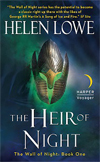
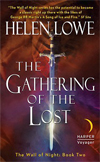
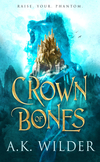







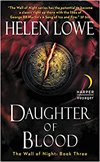
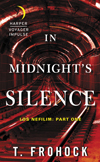



No comments:
Post a Comment